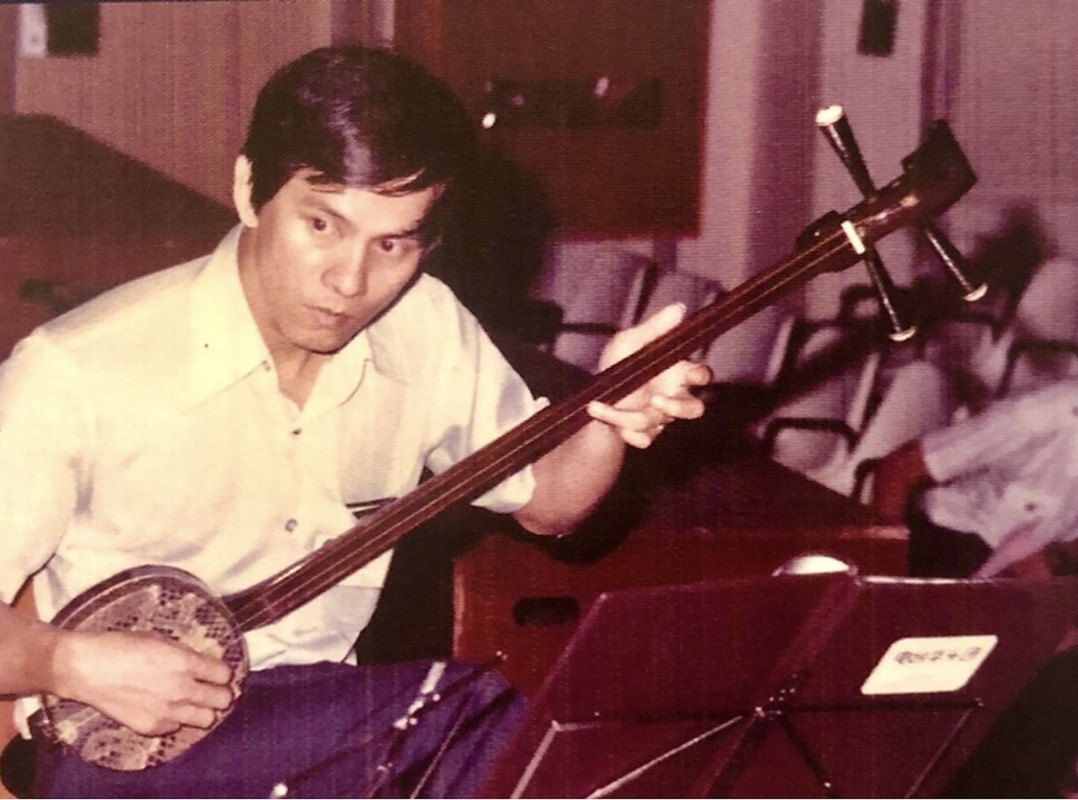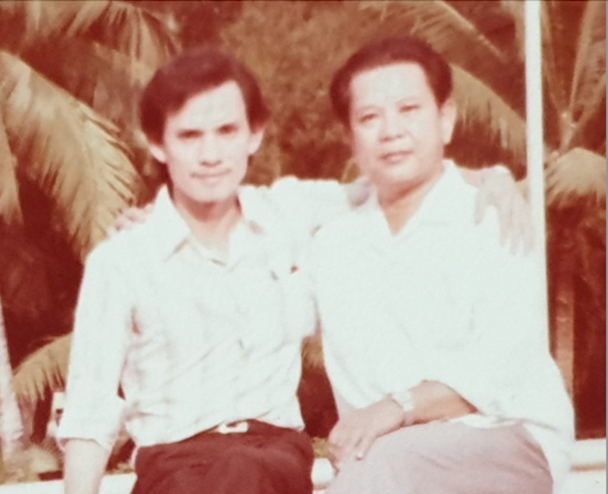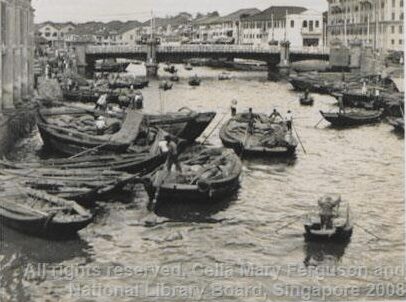Pioneer musician: Lee Yuk Chuan
Lee Yuk Chuan was born in 1933 in Hong Kong to parents from Xinhui, Guangdong. Both his father and maternal grandfather were Cantonese opera actors,1 and he moved with his parents to Singapore when he was very young.
His musical career spans more than half a century, and Lee remains active in the local choral scene. He is currently the President of Choral Association (Singapore), Honorary President of the Musicians Society of Singapore, Honorary Life President of the Association of Composers (Singapore), and Resident Conductor of the Melo Art Choir. He had previously studied violin under musicians2 including Goh Boon Eng, B. A. Bacsafra, and Susheela Devi, as well as vocal music under Chen Li Ching. He also studied conducting under Israeli musician Shalom Ronly-Riklis (1922–1994).
Active in Singapore and abroad
Lee’s music career began early in 1952, when he joined the Rediffusion Choir as a tenor. In 1959, he became the conductor of Metro Philharmonic Choir, which he co-founded with well-known composer Leong Yoon Pin (1931–2011). The following year, he conducted the alumni choir and Chinese orchestra of the Chinese Industrial and Commercial Continuation School (now known as Gongshang Primary School). Around the 1970s, he became the conductor of the choir under the Ministry of Defence’s Music and Drama Company, SAFRA’s (Singapore Armed Forces Reservist Association) mixed orchestra, People’s Association’s Choir, and the National Theatre Company Choir (renamed Melo Art Choir after the company was disbanded). He also led the Melo Art Choir and the alumni choir of the Chinese Industrial and Commercial Continuation School to perform in China, Hong Kong, Taiwan and Malaysia on multiple occasions.
In 1980, Lee joined the Singapore Composers’ Association as a member of its executive committee, and became its president in 1982. Besides promoting local Chinese choral music and composition, Lee, a violin teacher himself, also founded the Lee Yuk Chuan String Ensemble. He led the group on performing tours in Hong Kong and Taiwan, and was also often invited to judge vocal music competitions in Singapore, Malaysia, and other parts of Asia, including inter-school competitions in Hong Kong. In 1997, he planned a concert in Beijing featuring works by Singapore composers, and organised many international choral and vocal music competitions. Lee made many contributions to the music scene in Singapore and Malaysia, and was conferred the Public Service Medal in 2001. He was also conferred the Meritorious Award by the Composers and Authors Society of Singapore Ltd (COMPASS) in 2002, and the COMPASS Lifetime Achievement Award in 2012. In 2018, he was awarded the Singapore Chinese Cultural Contribution Award from the Singapore Chinese Cultural Centre.

The self-taught composer, whose technique and expression were mainly of the Romantic style, was likely influenced and shaped by Singapore’s cultural milieu in the earlier days. Lee’s musical creations are mainly vocal works, and he has released three collections of songs. His compositions for solo and choral performances include Chuangwai meigui hua nufang (Roses in Full Bloom outside My Window), Jinri wo you kanjian le ni (I Saw You Again Today), Wo ai (I Love), Heping de gesheng zuixiang (Song of Peace is Sung the Loudest), Taiyang a, weihe nibu xiexie (Sun, How About a Break), Caihong (Rainbow), Chunhui dadi (Spring Returns to Earth), Wanli lübo fan bailang (Boundless Blue Waves with White Sprays), Dafeng chui (The Wind Blows), Xinjiapo he, muqin de he (Singapore River, Our Mother), Weiguo jun song (Ode to the Defence Forces, lyrics by Huang Hongxia), Renren doushuo jinnian hao (Everybody Says This Is A Good Year, lyrics by Xin Xin), Hongjinnü gongge (Song of the Red-Scarved Women Workers, lyrics by Wang Qiutian), Laodong zhige (Labour Song), Qianjin ba, wode guojia (Forward My Country). Lee also composed music for Singapore’s first Chinese-language opera Lingzhi guniang (Lingzhi Girl), children ballet performance Jiaoao de qingwa (Proud Frog), dance performance Guitu saipao (The Tortoise and the Hare) and string ensemble Eastern Fantasia and Lingzhi Capriccio.
This is an edited and translated version of 先驱音乐家:李煜传. Click here to read original piece.
| 1 | Lee Yuk Chuan’s father was Li Wentian, also known as Li Dahan. |
| 2 | Birth and death years of musicians are unknown. |
Goh, Keng Leng. Yinyuejia zhuanji [Biography of musicians]. Singapore: Seng Yew Book Store, 1987. | |
Lee Yuk Chuan, oral history interview by Lye Soo Choon, 24 Dec 2009, transcript and audio, National Archives of Singapore (accession no. 003448), Reel 1–11. | |
Lee, Yuk Chuan. Li Yuchuan gequ ji [Collection of songs by Lee Yuk Chuan]. Taipei: Yuen-Yuhn Music Publishing Co, 1984. | |
People’s Action Party Central Cultural Bureau, ed. Xinjiapo song: bendi chuangzuo yuequ xuanji[Ode to Singapore: A selection of local compositions]. Singapore: People’s Action Party Central Cultural Bureau, 1968. | |
People’s Action Party Central Cultural Bureau, ed. Xinjiapo song: bendi chuangzuo yuequ xuanji[Ode to Singapore: A selection of local compositions]. Singapore: People’s Action Party Central Cultural Bureau, 1968. |










